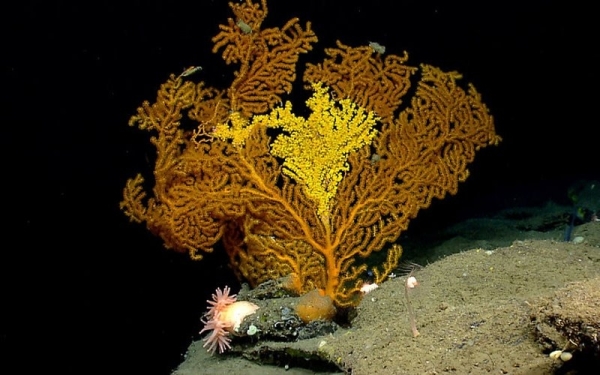Norway’s opening up of deep-sea mining in the Arctic ignores concerns of ocean scientists
The Deep Sea Conservation Coalition (DSCC), Environmental Justice Foundation (EJF), Greenpeace, Seas at Risk (SAR), Sustainable Ocean Alliance (SOA) and the World Wide Fund for Nature (WWF) welcome the adoption of Resolution B9-0095/2024 by the European Parliament regarding Norway’s decision to advance deep-sea mining in the Arctic. The adoption of this resolution comes as global resistance to this industry has reached an all-time high.
The European Parliament voted in favour of Resolution B9-0095/2024, sending a strong signal and expressing critical environmental concerns regarding Norway’s decision to open vast areas in Arctic waters for deep-sea mining activities. The resolution reaffirmed the Parliament’s support for a moratorium and called on the EU Commission, Member States and all countries to apply the precautionary approach and promote a moratorium on deep-sea mining, including at the International Seabed Authority.
The Parliament’s resolution follows a decision made by the Norwegian Parliament on January 9, 2024, to greenlight deep-sea mining activities across more than 280,000 square kilometres – an area equivalent to the size of Italy, in the sensitive Arctic. The move sparked widespread concern amongst the global community, such as scientists, the fishing industry, NGOs/civil society and activists, including a petition that has garnered over 550,000 signatures to date. The Norwegian Environment Agency, deemed that the strategic environmental impact assessment provided by the Norwegian government does not provide a sufficient scientific or legal basis to open for either deep-sea mining exploration or exploitation.
AdvertisementThe Parliament’s resolution raises concerns of Norway’s deep-sea mining plans on EU fisheries, food security, Arctic marine biodiversity and the potential transboundary impacts on neighbouring countries. Furthermore, due to not fulfilling the strategic environmental impact assessment criteria, Norway could potentially be in breach of national and international law.
To date, 24 countries globally, including 7 EU countries (Finland, France, Germany, Ireland, Portugal, Spain, and Sweden), are calling for a moratorium or pause on the industry. Multinational companies such as Google, Samsung, Northvolt, Volvo, and BMV have pledged not to source any minerals from the seabed.
Reports continue to sound the alarm that metals found in the deep sea are not needed and will only provide limited financial benefits to a select few, countering the claims of profit-driven deep-sea mining companies.
Contacts:
Patricia Roy, Press Officer, Deep Sea Conservation Coalition. +34 696 905 907, [email protected].
Kaja Lønne Fjærtoft, Global Policy Lead No Deep Seabed Mining, WWF International [email protected]
Anne-Sophie Roux, Deep-Sea Mining Europe Lead, Sustainable Ocean Alliance [email protected]
Simon Holmström, Deep-Sea Mining Policy Officer, Seas At Risk, +32479185808 [email protected]
Martin Webeler, Deep-Sea Mining Campaign Lead, Environmental Justice Foundation [email protected]
Haldis Tjeldflaat Helle, Deep-Sea Mining Campaign Lead, Greenpeace Nordic [email protected]
Share this article:






